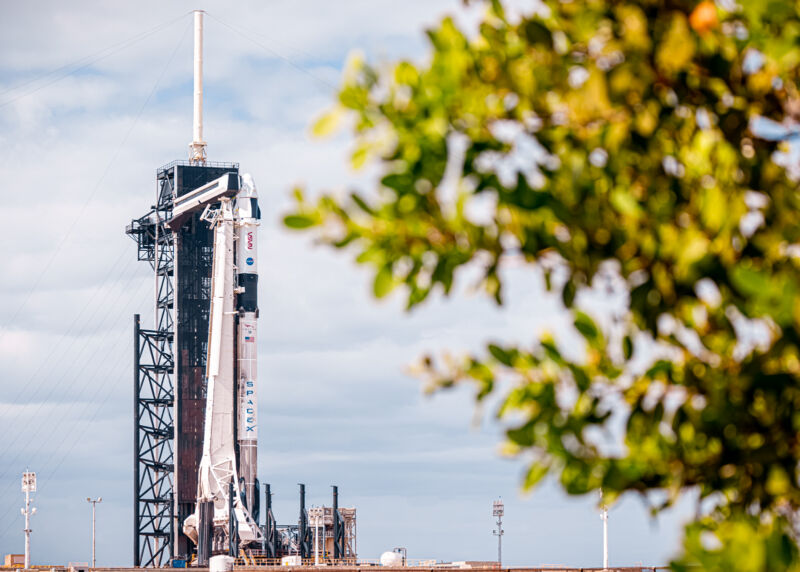

SpaceX becomes NASA’s second-largest vendor, surpassing Boeing
source link: https://arstechnica.com/science/2022/10/spacex-becomes-nasas-second-largest-vendor-surpassing-boeing/
Go to the source link to view the article. You can view the picture content, updated content and better typesetting reading experience. If the link is broken, please click the button below to view the snapshot at that time.

Hardware made, get paid —
SpaceX becomes NASA’s second-largest vendor, surpassing Boeing
NASA obligated $2.04 billion to SpaceX in fiscal year 2022.
Eric Berger - 10/26/2022, 2:10 PM

NASA obligated $2.04 billion to SpaceX in fiscal year 2022, which ended last month, according to new federal procurement data.
For the first time, the amount paid by the space agency to SpaceX exceeds that paid to Boeing, which has long been the leading hardware provider to NASA. Boeing received $1.72 billion during the most recent fiscal year, based on data first reported by Aviation Week's Irene Klotz.
The California Institute of Technology, which manages the Jet Propulsion Laboratory field center for NASA, remains the agency's No. 1 contractor, with $2.68 billion in funding. The academic institution is responsible for operating the California-based NASA field center and distributing funding for myriad robotic spacecraft missions such as Mars Perseverance and the Europa Clipper.
On the one hand, the ascension of SpaceX to the No. 2 spot on NASA's contractor list represents a major shakeup in the order of things. For a long time, NASA's human spaceflight and exploration programs were dominated by Boeing, Lockheed Martin, Aerojet, Northrop Grumman, and a handful of other traditional defense aerospace contractors.
However, it should come as no surprise that a company that has recently delivered the most services—and, arguably, value—to NASA should start to receive a large share of its contract awards. This has been most notable with SpaceX's performance on Commercial Crew, NASA's program to buy transportation services from private companies to bring its astronauts to and from the International Space Station.
Starts with crew
NASA awarded contracts to Boeing and SpaceX in 2014 to develop their spacecraft, paying Boeing about 60 percent more. At the time, it was widely believed that the traditional contractor, with this additional money, would deliver services sooner. But it was SpaceX that first flew crew to the space station in May 2020, and the company has since launched five operational missions to the orbiting laboratory.
AdvertisementIn the meantime, Boeing has struggled to get its Starliner spacecraft into a state of readiness, and a crewed test flight is now expected no earlier than next spring, with operational missions not occurring before at least the second half of 2023. On such a schedule, SpaceX will have delivered crew services three years sooner than Boeing.
Beyond schedule—and the money NASA has saved by paying SpaceX less—NASA has realized enormous value by having its own transportation to the space station at a time of extremely high geopolitical tensions between the United States and Russia. Without SpaceX, NASA would be going hat in hand to Russia for rides to space.
Much of the funding increase for SpaceX in 2022, an increase of about $400 million over the previous year, appears to be driven by contracts for the Human Landing System as part of the Artemis Moon Program and the purchase of additional Crew Dragon missions to the space station. (Individual contracts can be found within the Federal Procurement Data System).
Boeing has been the lead hardware contractor for NASA for much of the last decade due primarily to two main programs. Boeing is the lead contractor of the Space Launch System rocket's core stage, which has been funded through cost-plus contracts since 2011, and Boeing also is the primary contractor for Space Station operations.
The company's Starliner spacecraft is also an important contract, but it doesn't look like a long-term moneymaker for the company. To fulfill its Space Station crew needs for the remainder of this decade, NASA recently decided that it would purchase a significant majority of crew flights from SpaceX rather than Boeing. This was likely due to price considerations and the operational readiness of Crew Dragon.
Recommend
About Joyk
Aggregate valuable and interesting links.
Joyk means Joy of geeK